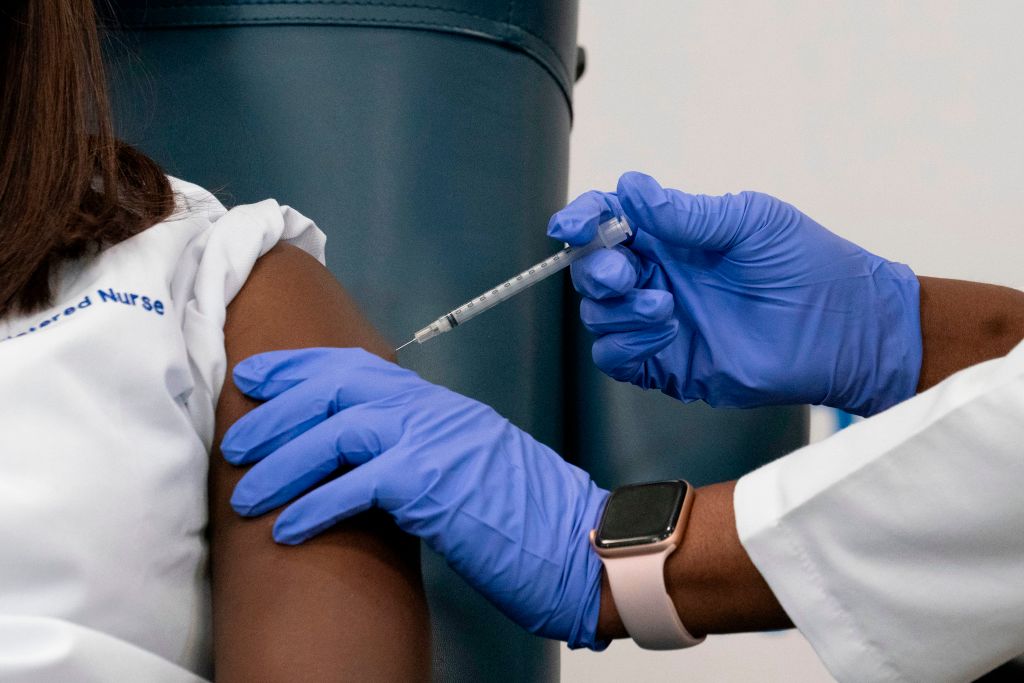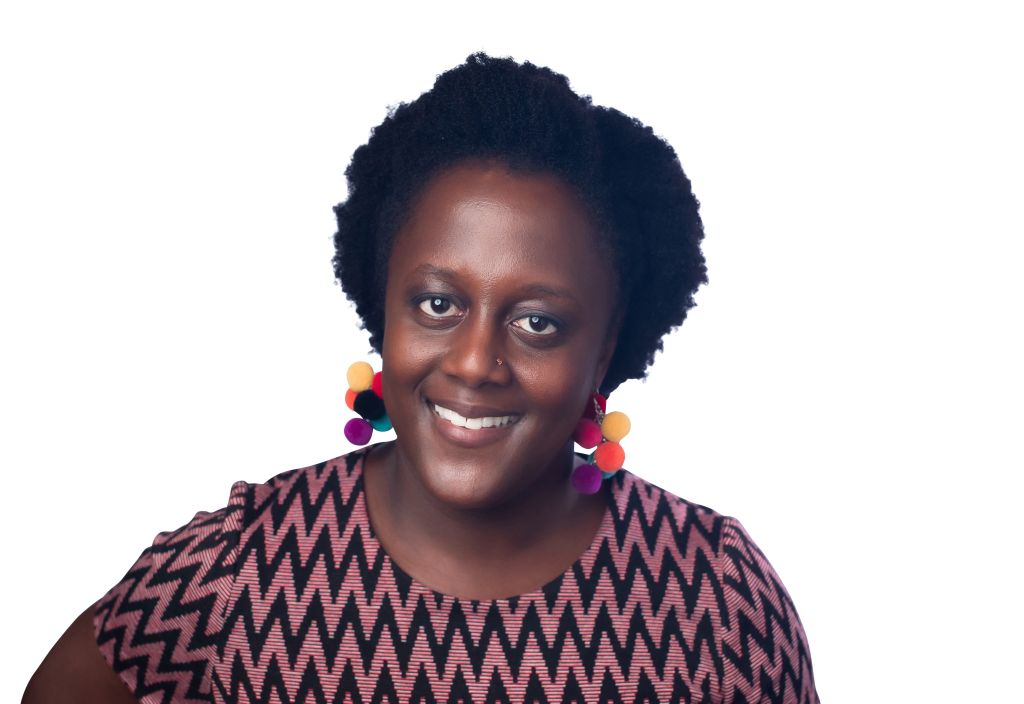
Source: MARK LENNIHAN / Getty
The COVID-19 pandemic has exacerbated many of the pre-existing racial inequities in our health care system that I see every day as a physician. My lived experience as a Black woman influences my work providing care for patients just as much as my medical training. As a Black woman and as an advocate for reproductive justice, I believe strongly that we all have the right to autonomy over our bodies and the right to raise families in safe, healthy environments on our own terms.
From caring for patients, speaking out about racial disparities in our health care system and even participating in a COVID-19 vaccine trial despite persistent racism and medical mistreatment in health care and medical research, myself and other Black women within and outside the medical community are focused on ensuring that Black people have the choice of being able to access safe, effective, medically-proven treatment.
I see firsthand the devastation that inequitable care has had on Black people and more specifically Black women. Black women are two to three times more likely to die from complications related to pregnancy than white women. This is true even when social and economic factors are the same. Most of these deaths are fully preventable, but factors like discrimination on the part of providers and economic barriers to treatment contribute to these devastating outcomes. Too often clinicians fail to take the concerns of Black women seriously. Black women are “too strong” or “too loud” or “just have an attitude.” Inadequate health insurance coverage and medical deserts in urban and rural areas also leave hospitals and other health care facilities out of reach for many Black patients altogether. These same patterns manifest in other health care sectors, from cardiovascular care to cancer treatments.
Now, during the COVID-19 pandemic, I have seen in new ways how our communities are disproportionately affected by this public health crisis and the need to address COVID-19 in Black communities is especially urgent. Black people have been disproportionately impacted by the pandemic, and 71 percent report that they know someone who has died or been hospitalized because of COVID-19, compared to 54 percent of Americans overall. Black patients are more likely to be hospitalized due to COVID-19, and the economic impact of the pandemic has also affected Black workers more harshly, making it more difficult for them to access health care through an employer. Black people are more likely to be working in front line jobs, in which they are putting themselves and their families at greater risk of contracting and spreading COVID-19. The compounding impacts of COVID-19 based on race have worsened racial divides in health outcomes. But as a reproductive health care physician, I know all too well that racial disparities in access to quality health care go beyond COVID-19.

Pictured: Dr. April Lockley | Source: Dr. April Lockley
When people ask how I’m doing these days, a simple “I’m fine” with a smile is my usual response. However, during one such brief encounter recently, I had a moment flashing back to all of the patient stories that have stuck with me over the past nine months. I remember vividly this patient’s face, a young Black woman, who had come to see me after a positive pregnancy test at home. She had a young child with her in the exam room and explained that her husband was hospitalized in the ICU on a ventilator with COVID-19. The fear, anxiety and sadness was visible across her face, all the while trying to be strong for her young child and hopeful about a new pregnancy. We completed the ultrasound and scheduled follow up appointments. However, before the follow up appointments could occur, the patient contacted me about vaginal bleeding. Ultimately, the pregnancy ended in a miscarriage, but in between that time she lost her job and was worried about health insurance coverage and money in general. Her husband did recover from COVID-19 and was discharged to a rehabilitation center for further recovery. All I could think of during my interactions with her was about all that she had gone through during that short period of time and wondered what systems were in place to make her situation bearable. Her family would likely get a bill for some of her appointments with me, along with her husband’s stay in the rehabilitation center, and now she was unemployed with the threat of losing her health insurance during a pandemic. If the pregnancy continued and she gave birth, did her job even provide adequate maternity leave with pay? So many ways in which our systems have failed to support people, especially Black people and low-income earners, have had devastating consequences during a pandemic.
Currently, with effective COVID-19 vaccines being rolled out, the slow of the pandemic may at last be in sight. But the legacies of structural racism and present-day discrimination will continue long after the pandemic is behind us. We must ensure that the COVID-19 vaccines are distributed in an equitable way that recognizes the disproportionate impact this pandemic continues to have on Black communities. If we do not look at COVID-19 vaccine distribution with an equity lens, the potential barriers to accessing a vaccine based on where one lives, works or accesses health care could exacerbate these tragic disparities. After this has been addressed, we must go further and address the other ways in which our health care system continues to fail Black people, particularly Black women.
Black Americans have legitimate reasons to be wary of our medical system, given patterns of discriminatory mistreatment and our country’s horrible history of medical experimentation being used on Black people and other people of color without their consent. Although Black communities have been especially impacted by COVID-19, many people may worry that they are being treated like “guinea pigs” for the new vaccine if they are encouraged to be vaccinated before other populations.
Health care professionals need to engage in open dialogue with their patients in order to build trust, rather than respond to their skepticism with judgment or condescension. This means taking people’s concerns seriously when it comes to providing all forms of care, not just for COVID-19. Public health officials can also address potential disparities in vaccinations through educational campaigns to help people make informed decisions for themselves about whether or not to be vaccinated. Another crucial step to ensure equity in vaccine distribution is making the vaccine available at no cost to patients, regardless of their insurance or immigration status.
As the vaccine is extended beyond health care workers to the general public, both policymakers and health care professionals must center equitable access when it comes to distributing and promoting the COVID-19 vaccine. Our communities cannot be left behind once again by our health care system when they have borne the brunt of COVID-19.
April Lockley, DO, is a Family Medicine physician in New York and Fellow with Physicians for Reproductive Health.
SEE ALSO:
Covid Vaccine Questions Answered By The Doctor Whose Research Exposed The Flint Water Crisis
Black ICU Nurse Sandra Lindsay Among First Of COVID-19 Vaccine Recipients

















